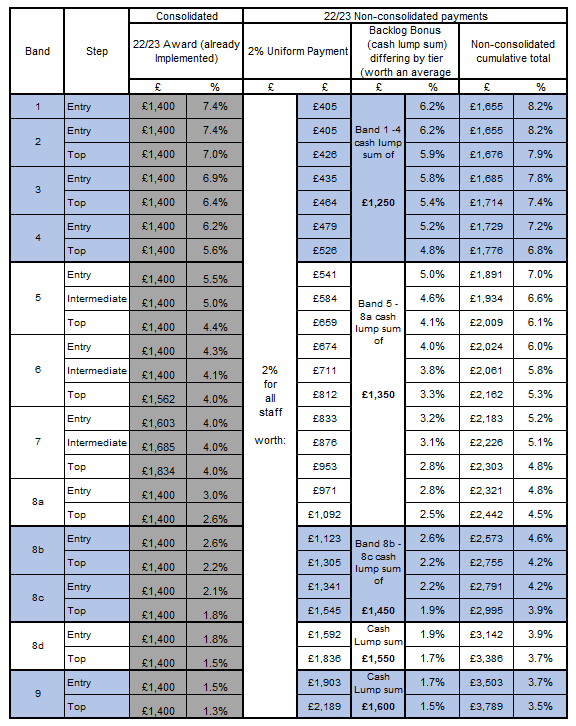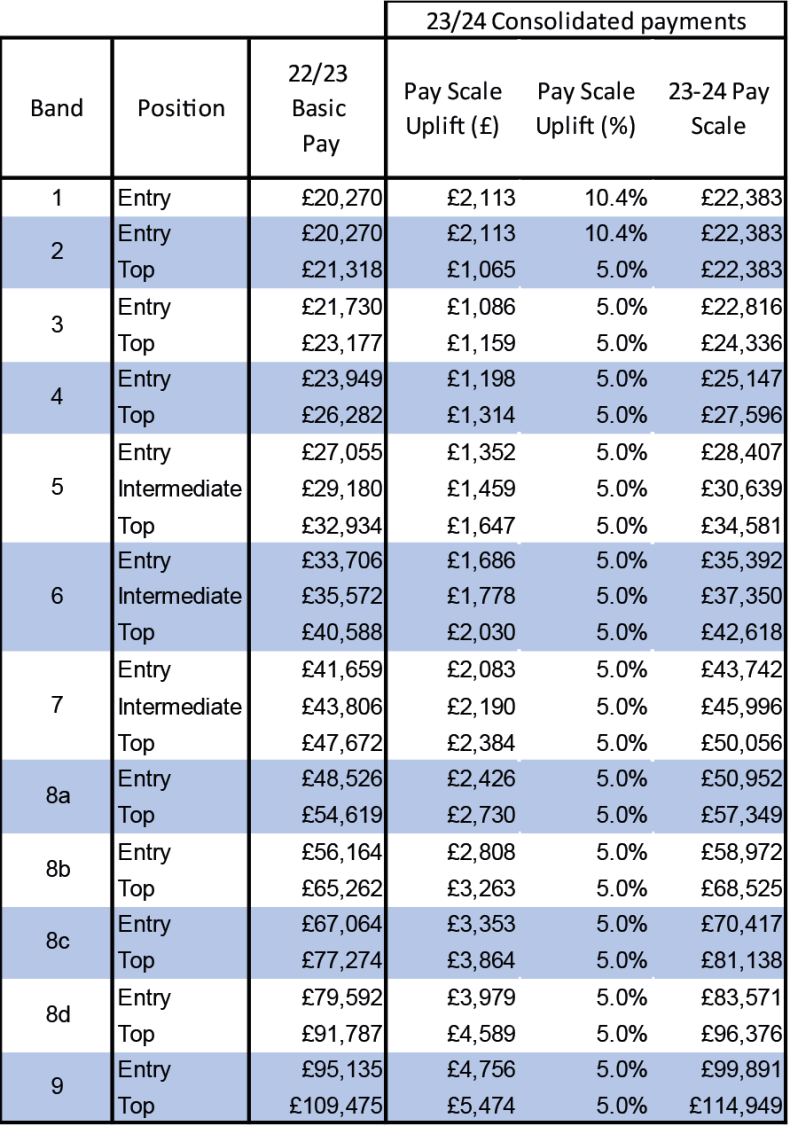Government and Agenda for Change trade unions ‘offer in principle’

Following a special NHS Staff Council meeting that took place on 16 March, the government confirmed to the Agenda for Change (AfC) trade unions and employers the details of a revised pay offer for 2022/23 and a proposal for a headline recurrent pay award uplift 2023/24.
Update 2 May 2023 - The NHS Staff Council has accepted the pay offer. Read further details, including a joint statement from the NHS Staff Council.
Details of the ‘offer in principle’
The offer is made up of the following three parts which are detailed below.
Details of this pay offer can also be found in this NHS 'offer in principle' slide deck and in this pay offer poster.
Developed by the Department of Health and Social Care, these frequently asked questions (FAQs) provide clarifying advice on pay, eligibility and the offer.
Next steps
The Agenda for Change (AfC) trade unions are now consulting with their memberships on the 'in principle offer’ made by the government. The dates of these consultations can be found on this web page. Employers are encouraged to support staff that are members of AfC trade unions to engage with the consultation process.
Staff can be directed to frequently asked questions (FAQs), produced with the Department of Health and Social Care, for more information, including the eligibility criteria for the offer.
During the period of consultation, and pending of any final decisions from their members, the AfC trade unions have agreed to continue with the pausing of all planned industrial action.
Further information about nursing staff
Separately to the ‘offer in principle’ above, the government has agreed with the RCN its commitment to address the specific challenges faced by nursing staff in terms of recruitment, retention and professional development.
This will mean working with NHS Employers and all agenda for change trade unions over the next year to consider whether a separate pay spine for nursing might be established.
Media statements
- Read our media statement from Danny Mortimer, chief executive at NHS Employers.
- Read the NHS Confederation's response to revised pay offer to health unions from government.





